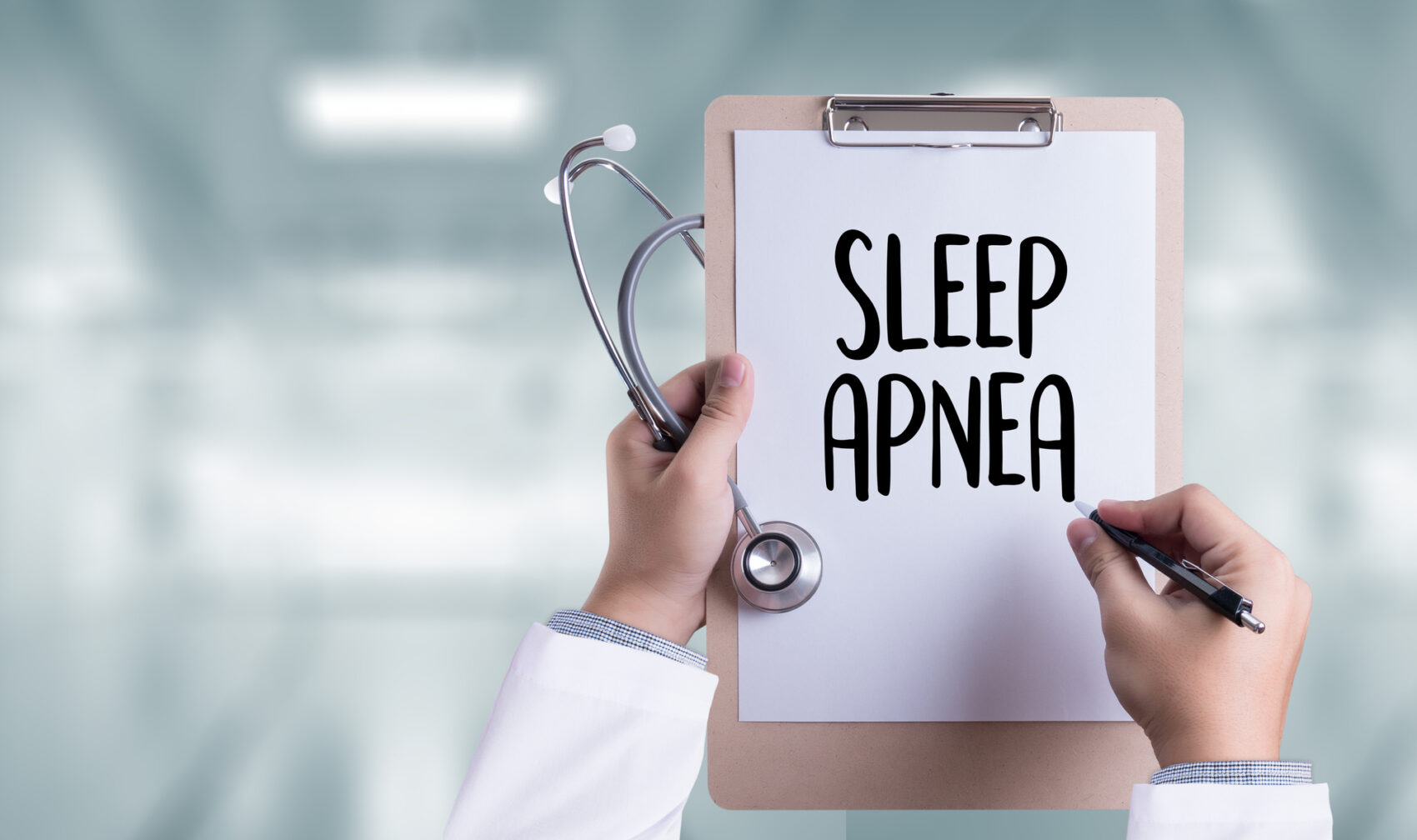
Sleep apnea affects tens of millions of people living in the United States. The two main types of sleep apnea are central sleep apnea and obstructive sleep apnea. Central sleep apnea is when the breathing muscles and brain don’t communicate properly. The most common form of sleep apnea, obstructive sleep apnea (OSA), occurs when the throat muscles relax during the night.
In short, a sleep apnea dentist is a dental professional who studies the effects of the oral cavity and muscles on our ability to breathe while sleeping. This is not a common specialty in the dental field, but we believe it will be because dentists are extremely equipped to handle OSA patients.
Sleep apnea dentists collaborate with sleep doctors and other physicians to create a treatment plan for OSA patients that includes a custom-fitted oral appliance (or mandibular advancement device). Dental sleep medicine is a dental specialty that focuses on treating sleep issues related to the oral cavity and throat.
The Dentist’s Role
Dentists have the greatest opportunity to identify obstructive sleep apnea in patients. Dentists can recognize certain facial profiles that are more likely to experience OSA and see some patients more regularly so the symptoms become more obvious.
It’s important to note that dentists do not diagnose sleep apnea, but they will encourage their patients to seek a diagnosis from their physician or sleep doctor.
Once a patient has received a diagnosis, the dentist can recommend an oral appliance that meets their needs.
Candidates for Oral Appliances
Not every person with obstructive sleep apnea will be referred to a sleep apnea dentist, but most of them can benefit from having one on their treatment team.
Oral appliances benefit patients who suffer primarily from loud snoring, cannot or don’t want to use a CPAP machine, and don’t want or cannot undergo surgery.
The Oral Appliance Process
After a physician has diagnosed a patient with obstructive sleep apnea, the patient can schedule an initial consultation with a sleep apnea dentist. From there, the process is pretty simple.
The sleep apnea dentist will take impressions of the patient’s oral cavity and send them to a lab where the customized appliance is carefully crafted. Then, the appliance is delivered to the patient.
After wearing the mandibular advancement device for a certain period of time, patients should undergo another sleep study to ensure the device is working.
How to Know If You Have OSA
The only way to truly determine if you have obstructive sleep apnea, or any other kind of sleep apnea, is to visit your physician, a sleep doctor, or a sleep apnea dentist. For now, here are the most common symptoms of obstructive sleep apnea:
- Headaches in the morning
- Loud snoring
- Drowsiness throughout the day
- Difficulty sleeping or insomnia
- High blood pressure
- Never feeling rested
If you are experiencing any of these symptoms, contact our office today to schedule an evaluation. Treatment, and a better life, could be right around the corner!
Our Sleep Apnea Dentist
Dr. Timothy Mickiewicz is a pioneer of dental sleep medicine. OSA patients from all over the country visit him to receive a customized mandibular advancement device that changes their lives for the better.
Do you want to have more energy? Improve your mood? Feel like yourself again? Call (916) 469-9178 to schedule an appointment with Dr. Mick today.


